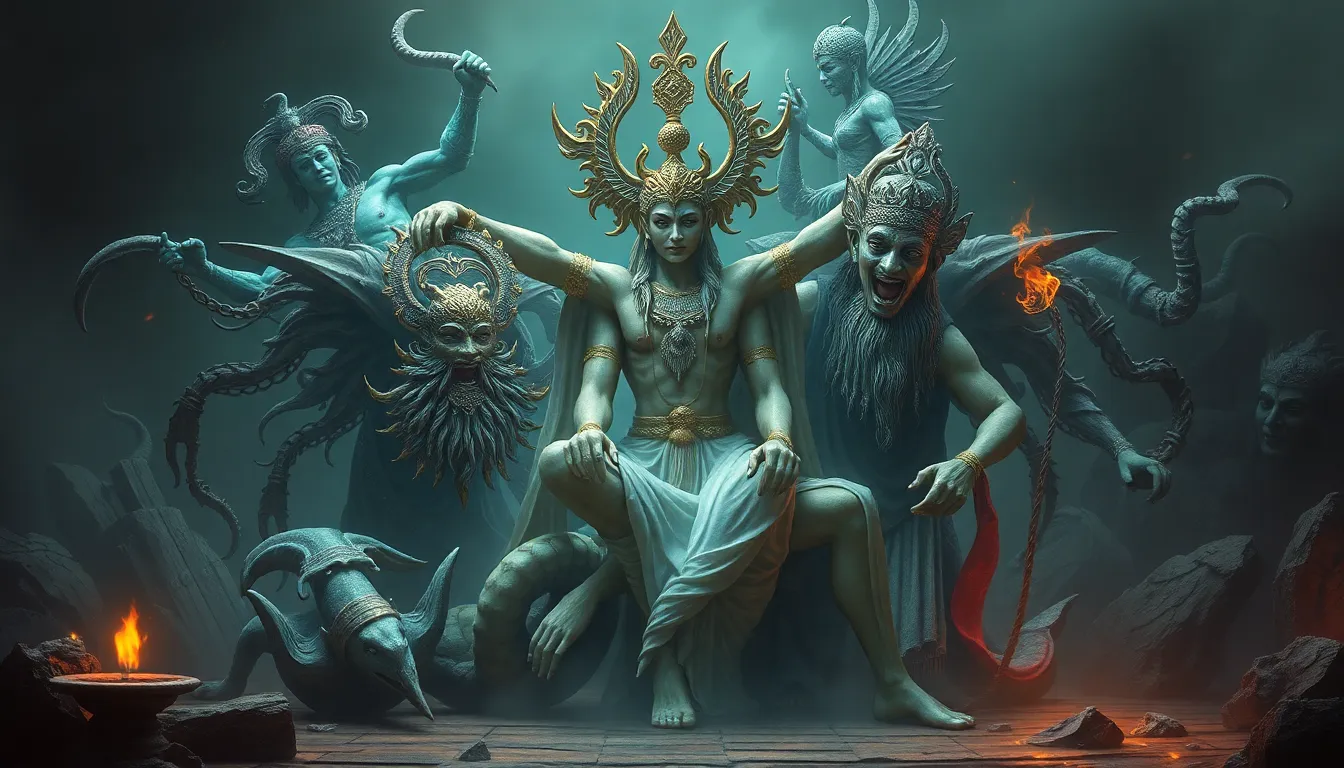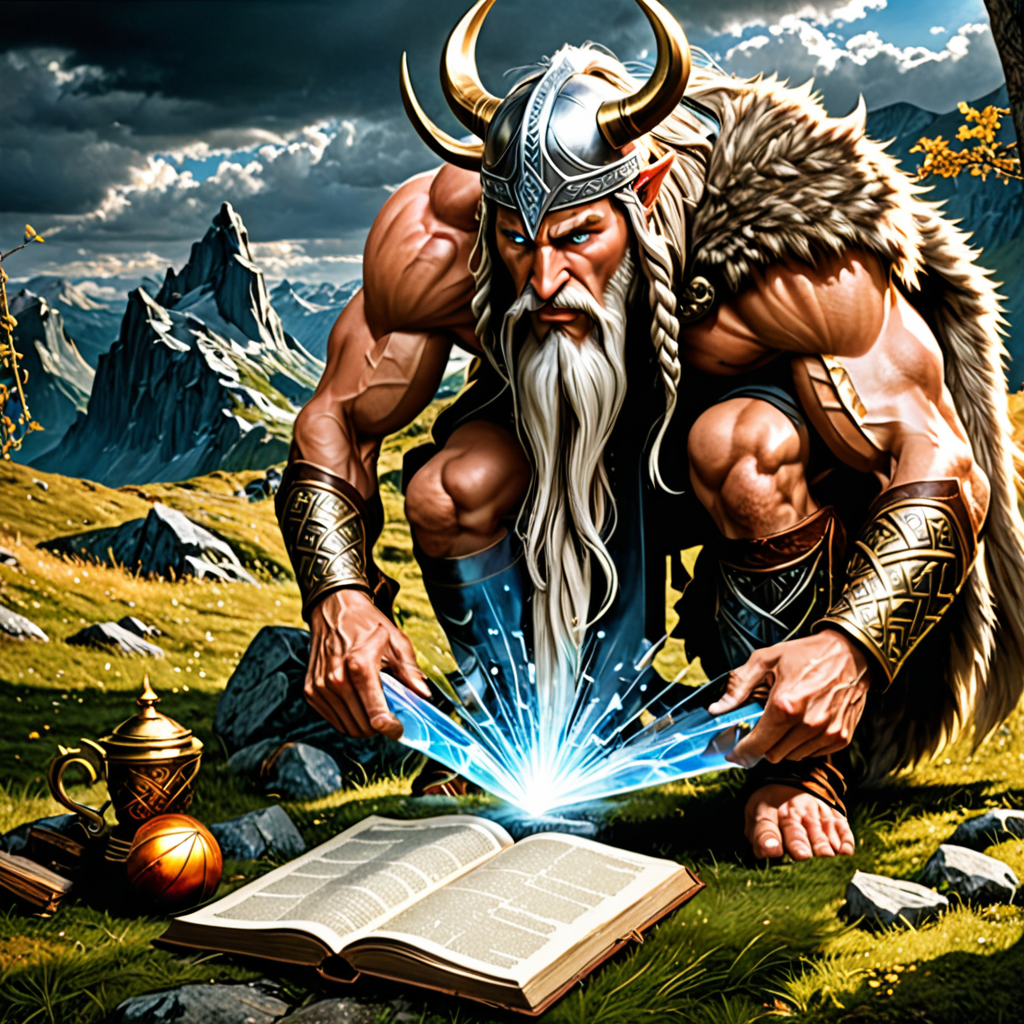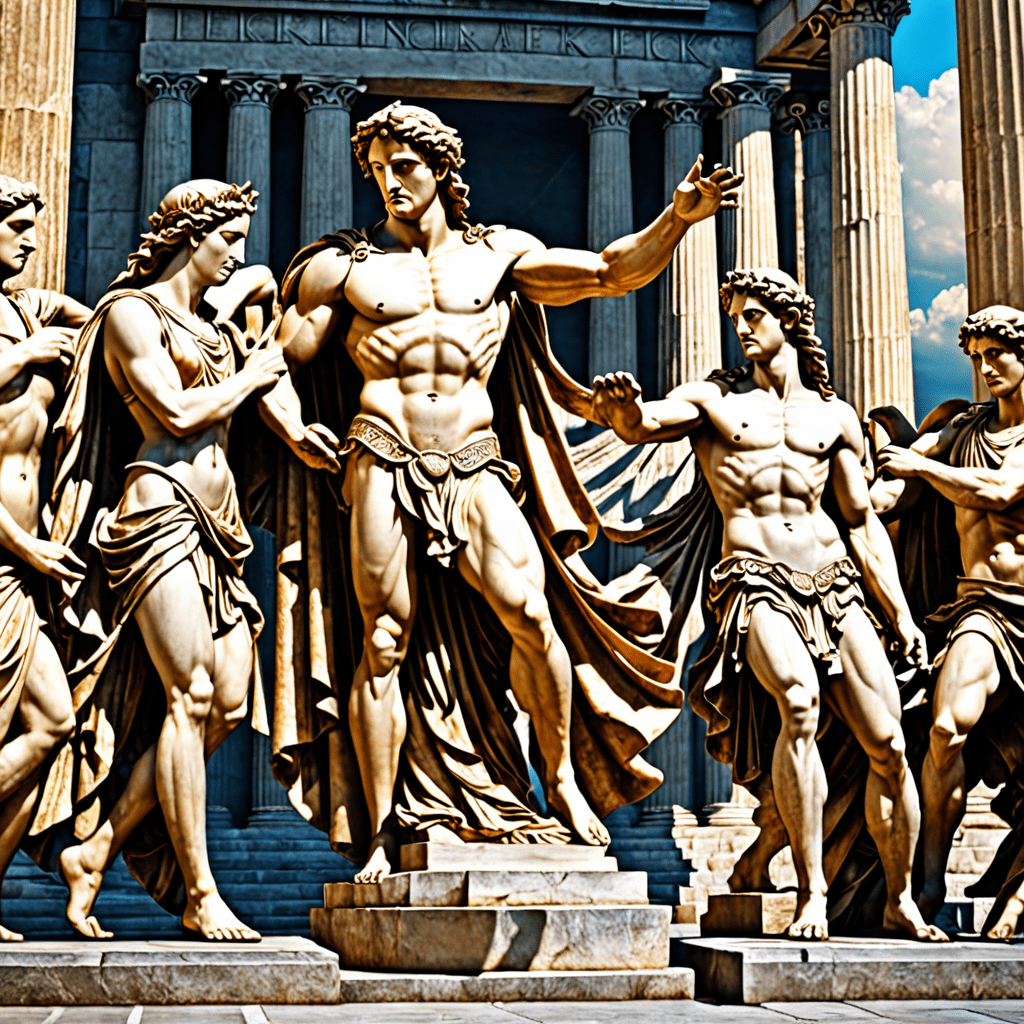The Role of Ancient Deities in Shaping Human Understanding
I. Introduction
Ancient deities have played a pivotal role in shaping human civilization and thought. These divine figures, revered in various cultures around the world, embody the values, fears, and aspirations of the societies that worship them. They serve not only as objects of veneration but also as frameworks through which humans can understand complex aspects of life and the universe. This article aims to explore the profound influence of ancient deities on human thought, culture, and understanding throughout history.
II. Historical Context of Ancient Deities
The origins of deities can be traced back to early civilizations, where they emerged as personifications of natural forces and human experiences. Ancient cultures, such as the Sumerians, Egyptians, Greeks, and Indus Valley civilizations, developed rich pantheons of gods and goddesses that represented various aspects of life, from fertility and harvest to war and wisdom.
Over time, religious beliefs and practices evolved, reflecting changes in societal values and knowledge. Mythology became a crucial element in these societies, providing narratives that explained the world around them. Myths served as moral lessons, historical accounts, and frameworks for understanding human existence.
III. The Psychological Impact of Deities
Ancient deities often personify human traits and emotions, allowing individuals to relate to them on a personal level. This anthropomorphism of deities serves several psychological functions:
- Fear and Reverence: The fear of wrathful gods and the reverence for benevolent deities can significantly influence human behavior and decision-making.
- Existential Questions: Deities provide explanations for life’s mysteries, offering comfort in the face of uncertainty and existential dread.
Through these personifications, people find a means to cope with the unknown and navigate their lives, often attributing their successes and failures to the will of these divine figures.
IV. Ancient Deities and Moral Frameworks
One of the significant contributions of ancient deities is the establishment of moral codes. Many societies attributed ethical teachings to divine commandments, creating a framework for right and wrong based on their religious beliefs. For instance:
- Greek Culture: The teachings of gods like Zeus emphasized justice and order.
- Egyptian Beliefs: Osiris and Ma’at reinforced concepts of truth and morality.
- Mesopotamian Values: The Code of Hammurabi was seen as divinely inspired, providing a legal framework.
The moral teachings of these ancient deities have had a lasting impact on contemporary society, influencing modern ethical discussions and legal systems.
V. Deities in Human Creativity and Expression
Ancient deities have been a significant source of inspiration in literature, art, and music. The stories and attributes of these gods and goddesses have fueled human creativity across generations. Some notable aspects include:
- Cultural Identity: Deities often embody the values and identity of a culture, fostering community cohesion.
- Artistic Expressions: From ancient sculptures of Athena to the epic poems of Gilgamesh, deities have inspired countless works of art and literature.
For example, the vibrant depictions of Hindu deities in temple art reflect the beliefs and traditions of Indian culture, while the tragedies of Greek mythology have shaped Western literature profoundly.
VI. The Influence of Ancient Deities on Science and Philosophy
In ancient times, explanations for natural phenomena were often attributed to the actions of deities. This mythological perspective laid the groundwork for early philosophy and science:
- Natural Phenomena: Thunder was attributed to Zeus, and the flooding of the Nile was seen as the tears of Isis.
- Transition to Rational Explanations: The emergence of rational thought and scientific inquiry gradually shifted explanations from the divine to empirical evidence.
The philosophical implications of these beliefs led to significant advancements in human understanding, paving the way for the development of modern science.
VII. Case Studies of Prominent Ancient Deities
Several deities stand out in their cultural significance and influence:
- Zeus: The king of the gods in Greek mythology, Zeus represents power and leadership, embodying ideals of justice and authority.
- Isis: In Egyptian mythology, Isis symbolizes motherhood, healing, and magic, playing a crucial role in the afterlife beliefs of ancient Egyptians.
- Shiva: In Hinduism, Shiva represents the cycle of creation and destruction, embodying the balance of the universe.
These deities exemplify how ancient cultures used divine figures to express complex human experiences and societal values.
VIII. The Decline of Deity Worship and Its Effects
As societies evolved, the rise of monotheism significantly impacted polytheistic beliefs. This shift brought about changes in human understanding and societal values:
- Monotheism: The transition to a single deity, as seen in Abrahamic religions, led to the decline of ancient deities.
- Shifts in Values: New ethical frameworks emerged, often centered around a singular moral authority.
Despite this decline, the legacy of ancient deities persists in modern spiritual movements that draw upon pagan practices and polytheistic beliefs.
IX. The Contemporary Relevance of Ancient Deities
In recent years, there has been a resurgence of interest in ancient deities and pagan practices. This revival is evident in various contemporary movements:
- Modern Paganism: Groups like Wicca and Heathenry embrace ancient deities, integrating them into their spiritual practices.
- Philosophical Discussions: Ancient deities continue to influence modern psychological and philosophical discussions, particularly in exploring human nature and morality.
The enduring relevance of these ancient figures illustrates the timeless connection between humanity and the divine, highlighting how these deities continue to shape our understanding of the world.




